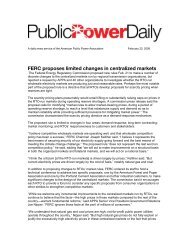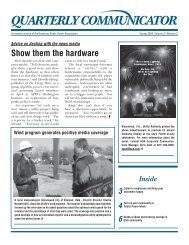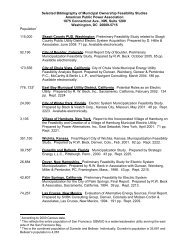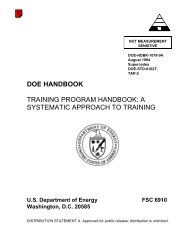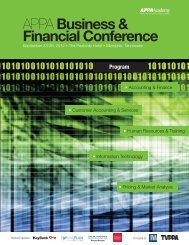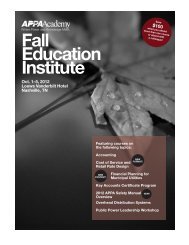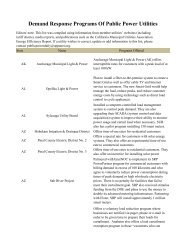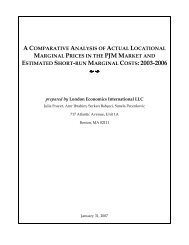Safeguarding Classified and Sensitive But Unclassified Information ...
Safeguarding Classified and Sensitive But Unclassified Information ...
Safeguarding Classified and Sensitive But Unclassified Information ...
Create successful ePaper yourself
Turn your PDF publications into a flip-book with our unique Google optimized e-Paper software.
Failure to report a security violation is itself a security violation <strong>and</strong> may be a very serious<br />
concern. After the arrest of Navy spy Jerry Whitworth, who was part of the infamous John Walker<br />
spy ring, interviews with Whitworth's work colleagues identified one who had noticed classified<br />
papers in Whitworth's personal locker, another who had observed Whitworth monitoring <strong>and</strong><br />
copying a sensitive communications line without authorization, <strong>and</strong> a third who knew Whitworth<br />
took classified materials home with him but believed he was doing it only to keep his work<br />
current. Failure to report these violations enabled Whitworth's espionage to continue.<br />
Possessing classified information in the home is a very serious concern as it may indicate current<br />
or the potential for future espionage. At the time of their arrest, many well-known spies were<br />
found to have large quantities of classified documents at their residences. CIA spy Aldrich Ames<br />
had 144 classified documents at his home, while Edward Moore had 10 boxes of documents at<br />
home. Of various Navy spies, Jonathan Pollard had a suitcase full of classified materials, Michael<br />
Walker had 15 pounds of classified material, while Samuel Morison had two portions of Navy<br />
documents marked SECRET.<br />
Sanctions<br />
Violations of policy for the safeguarding of classified information could result in a number of<br />
actions, both civil <strong>and</strong> criminal. Among the civil actions that the Government may bring in<br />
Federal court are the application for a court order enjoining the publication or other disclosure of<br />
classified information; suits for money damages to recompense the United States for the<br />
damages caused by an unauthorized disclosure; <strong>and</strong> suits to require the forfeiture to the United<br />
States of any payments or other monetary or property gains that have resulted or may result from<br />
an unauthorized disclosure.<br />
The scope of prospective administrative actions depends on whether the person alleged to have<br />
violated the terms of the SF 312, <strong>Classified</strong> <strong>Information</strong> Nondisclosure Agreement, is a<br />
Government or non-Government employee. A Government employee would be subject to the<br />
entire range of administrative sanctions <strong>and</strong> penalties, including reprim<strong>and</strong>, suspension,<br />
demotion or removal, in addition to the likely loss of the security clearance.<br />
In situations involving an unauthorized disclosure by a non-Government employee, the action will<br />
focus on the relationship between the Government <strong>and</strong> the organization that employs the<br />
individual. The Government cannot remove or otherwise discipline a non-Government employee,<br />
but it can, <strong>and</strong> in all likelihood will revoke the security clearance of that employee, <strong>and</strong> prevent<br />
the employing organization from using that employee on classified projects. The Government<br />
may also move against the employing organization in accordance with the terms of their<br />
relationship.<br />
24



